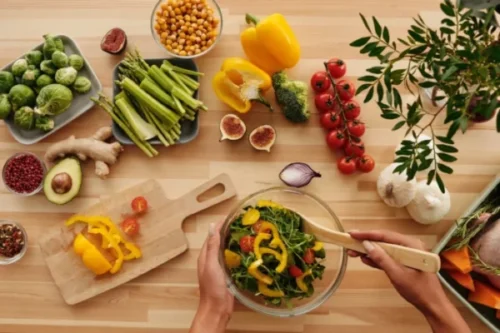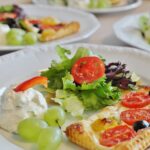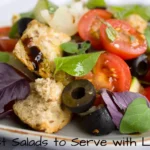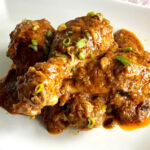51 Basic Cooking Tips for Beginners are intended to assist individuals in becoming more self-assured and skilled in the kitchen, allowing them to prepare delicious and healthy meals for themselves and their loved ones. Although cooking can be a pleasurable and fulfilling activity, it may be challenging for novices or those lacking experience. The provision of cooking tips can make it easier for individuals to get started by providing them with guidance on meal planning, ingredient selection, cooking techniques, and other helpful information. By following these tips, individuals can gain the confidence and competence necessary to create meals that are not only tasty but also nutritious.
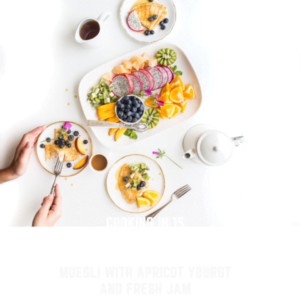
By providing cooking tips, individuals can learn how to better plan their meals, properly measure ingredients, use the right cooking tools and equipment, and execute a wide range of cooking techniques. With practice and patience, these tips can help anyone become a skilled and confident cook, capable of preparing a variety of delicious and nutritious meals.
- Read the recipe thoroughly before you start cooking. This will help you ensure that you have all the necessary ingredients and equipment.
- Always preheat your oven before baking. This will ensure that your food cooks evenly and properly.
- Invest in a good set of knives. Sharp knives can make all the difference when it comes to slicing and chopping ingredients.
- Use a meat thermometer to ensure that meat is cooked to the proper temperature.
- Don’t overcrowd your pan when sautéing or frying. This can cause your food to steam instead of sear.
- Use a timer when baking to prevent overcooking or undercooking your food.
- Taste your food as you cook. This will help you adjust seasoning and ensure that your dish tastes delicious.
- Use a kitchen scale to measure ingredients accurately. This can help ensure consistency in your cooking.
- Don’t be afraid to improvise or make substitutions when cooking. Cooking is an art, and sometimes the best recipes are created through experimentation.
- Keep your workspace clean and organized. This can help prevent cross-contamination and ensure that your cooking process runs smoothly.
- Let meat rest after cooking to allow the juices to redistribute. This can help keep your meat tender and juicy.
- Use the right size pot or pan for the job. Using a pot or pan that is too small or too large can affect cooking times and temperature.
- Use high-quality ingredients whenever possible. This can make a big difference in the taste of your final dish.
- Use a colander to rinse fruits and vegetables before using them in your recipes.
- Always taste your food before serving it. This can help you make any final adjustments to the seasoning and ensure that your dish tastes perfect.
simple cooking tips - Keep a well-stocked pantry with essential ingredients like olive oil, vinegar, canned beans, and spices. This will make it easier to prepare meals on the fly.
- Use a spoon to peel ginger. This will save you time and prevent waste.
- Use a microplane to grate garlic. This will help release more of its flavour.
- Keep your knives sharp. Dull knives are more dangerous and can make it harder to slice and chop ingredients.
- Use a kitchen timer to keep track of cooking times. This will help prevent overcooking or undercooking your food.
- Use a food scale to measure ingredients accurately. This is especially important when baking.
- Don’t be afraid to season your food with salt and pepper. Proper seasoning can bring out the flavours in your dishes.
- Use a vegetable peeler to shave thin slices of hard cheese or chocolate.
- Use a silicone mat when rolling out dough. This will prevent it from sticking to your work surface.
- Roast vegetables at a high temperature to help them caramelize and develop a rich, savoury flavour.
- Use parchment paper to line baking sheets. This will prevent your food from sticking and make cleanup easier.
- Keep a bowl of ice water nearby when blanching vegetables. This will help them retain their vibrant colour.
- Use a fish spatula to flip delicate foods like fish and eggs. This will prevent them from falling apart.
- Use a pastry brush to brush egg wash or glaze onto baked goods. This will help them develop a shiny, golden-brown crust.
- Let meat come to room temperature before cooking. This will help it cook more evenly.
- Use a vegetable peeler to peel thin strips of vegetables like carrots or zucchini for salads or stir-fries.
- Use a colander to rinse canned beans or vegetables before using them in your recipes.
- Use a kitchen torch to caramelize sugar on top of desserts like crème brûlée or fruit tarts.
- Use a splatter screen when frying to prevent oil from splashing onto your stovetop.
- Use a paper towel to blot excess moisture from ingredients like tofu or eggplant before cooking.
- Use a slow cooker or pressure cooker to make flavorful, tender meals with minimal effort.
- Use a citrus reamer to juice lemons or limes. This will help you get the most juice out of your citrus fruits.
- Use a baking stone to help pizza crusts cook evenly and develop a crispy texture.
- Use a mandolin to slice vegetables thinly and evenly for dishes like salads or gratins.
- Always Use Salt when boiling eggs and if any one egg is broken then a drop of vinegar into boiling water
- Use cold water when the potato is fully boiled put the potato in cold water immediately so it’s easy to pill
- Test the oil in a pan before adding all of your ingredients. Throw a small piece in and make sure it sizzles before adding the rest.
- When cooking with chilli peppers, protect your hands and eyes by wearing rubber gloves. Or coat your hands in vegetable oil and wash them with soap and water immediately after handling.
- Homemade meals are good for the heart and soul. Cook often and cook with others.
- To prevent sogginess, do not dress salads for large parties. Serve, then allow guests to add their own dressing.
- Seafood should never smell overwhelmingly fishy; that’s a sure sign that it’s starting to go bad.
- Chill cookie dough before putting it on a baking sheet. This will help prevent your butter from flattening and losing its fluffy texture.
- Remove seeds from chile peppers to help reduce heat.
- Keep key kitchen appliances, like a blender, on your countertop to encourage frequent use.
- Disinfect wood cutting boards by hand washing them with vinegar.
- And as always – keep it simple
In conclusion, basic cooking tips you should memorize, Cooking is an essential skill that can benefit anyone, regardless of age, background, or level of experience. By following basic cooking tips and advice, individuals can improve their skills in the kitchen, become more confident and competent cooks, and create delicious and nutritious meals for themselves and their families.
Don’t be afraid to make mistakes! Cooking is a learning process, and even experienced chefs make mistakes from time to time. Embrace your mistakes as learning opportunities and keep experimenting and trying new things.
Photo by www.pexels.com
If you think this information is helpful to you then please follow Us for more
